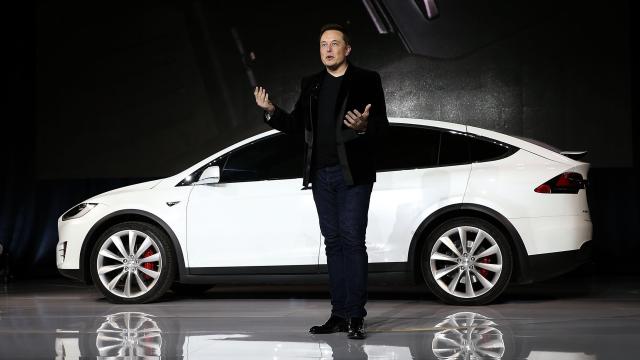Tesla CEO Elon Musk, known as “Mr.Tweet” by some attorneys, will resume testifying Tuesday before a nine-person jury in a securities fraud trial stemming from his 2018 tweets proclaiming his intention to take Tesla private at $US420 ($583) per share. That figure, Musk said under oath, has absolutely nothing to do with cannabis.
Lawyers representing angry Tesla investors want to prove Musk’s infamous “funding secured” tweets were “indisputably false,” and wound up costing shareholders tens of millions of dollars in losses. The stakes are high. Musk, on the other hand, wants the jury to believe funding was in fact secured, at least in his mind. If the jury sides with the shareholders, Musk may have to pay out billions in damages.
Am considering taking Tesla private at $420. Funding secured.
— Elon Musk (@elonmusk) August 7, 2018
In his two previous days on the witness stand, Musk and his lawyer Alex Spiro tried to paint a picture of Musk as a “rushed, reckless,” tweeter who nonetheless still had his shareholders’ best interests at heart. Musk says he had every intention of taking Tesla private and even consulted with tech heavyweight like Dell founder Michael Dell and Oracle co-founder Larry Ellison, who both said they thought the move was a good idea. Musk claims one of the the primary reasons he wanted to take Tesla private was to stave off an “unprecedented attack” from short sellers.
Tesla, of course, never ended up going private, despite multiple tweets and even an official Tesla blog post claiming Musk had secured the necessary funding to do so. On his second day on the stand, Musk blamed much of that double take on Yasir Al-Rumayyan, the governor of Saudi Arabia’s sovereign wealth fund, who he accused of “arse covering” and going back on the funding deal. The Saudi PIF, Musk claimed, would have provided roughly $US10 ($14) billion in funds to take a minority stake in a private Tesla had Al-Rumayyan followed through. Musk says he thought that was “done deal.”
Still, even with Al-Rumayyan out of the picture, Musk and his attorney repeatedly tried to assure the jury that he could have still financed the Tesla privatization effort by selling his stock in SpaceX, where he is also CEO. Spiro, Musk’s attorney, repeatedly tried to persuade the jury that Musk’s ill-prepared tweets didn’t contain “lies” as the shareholder lawsuit alleges, but rather, more convoluted “technical wordsmith inaccuracies.” The CEO’s sloppy tweets, in this telling, were actually a sign of Musk’s radical transparency to shareholders. Musk himself said he kept on tweeting about the supposed dead even when he knew Tesla was working on crafting its own formal statement about going private, because he was “worried that shareholders would think I was trying to exclude them” if he stayed silent.
The shareholders suing Musk claim his tweets pumped Tesla stock price up but eventually led to huge decline once it was clear the deal wouldn’t go through. Those shareholders want to hold Musk accountable for the tens of millions in stock value they lost during those trying weeks. Musk, however, repeatedly tried to throw water on this argument by claiming there was no “causal link” between his tweeting and fluctuations in a company’s stock performance. Tesla’s stock and various cryptocurrencies have skyrocketed and plummeted plenty of times after Musk’s tweets.
“Just because I tweet something does not mean people will believe it or act accordingly,” Musk said during his first day of testimony.
